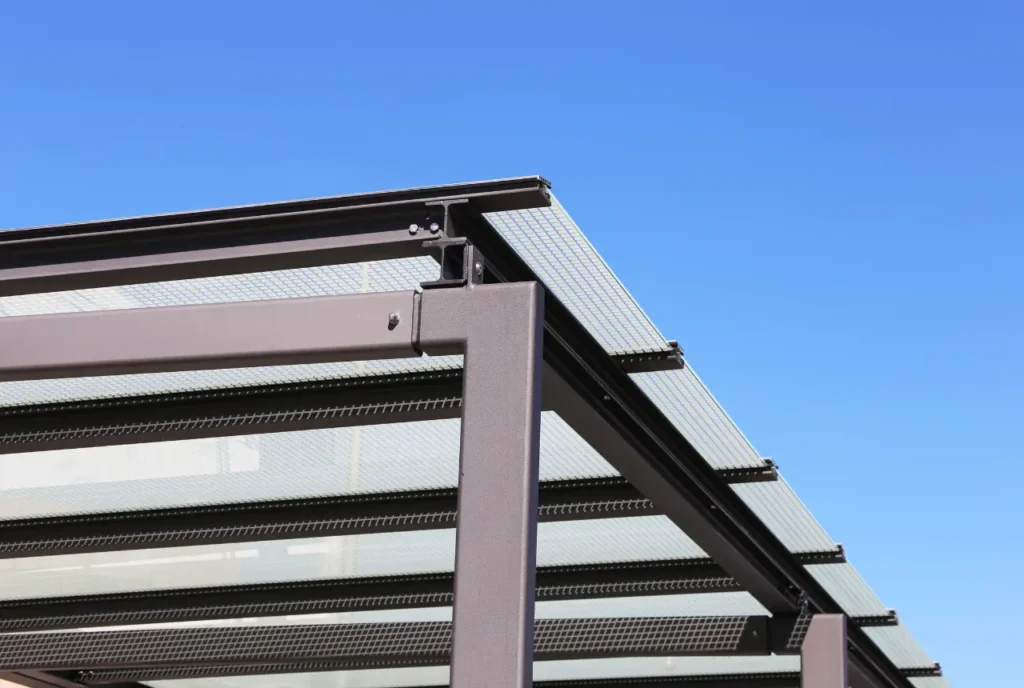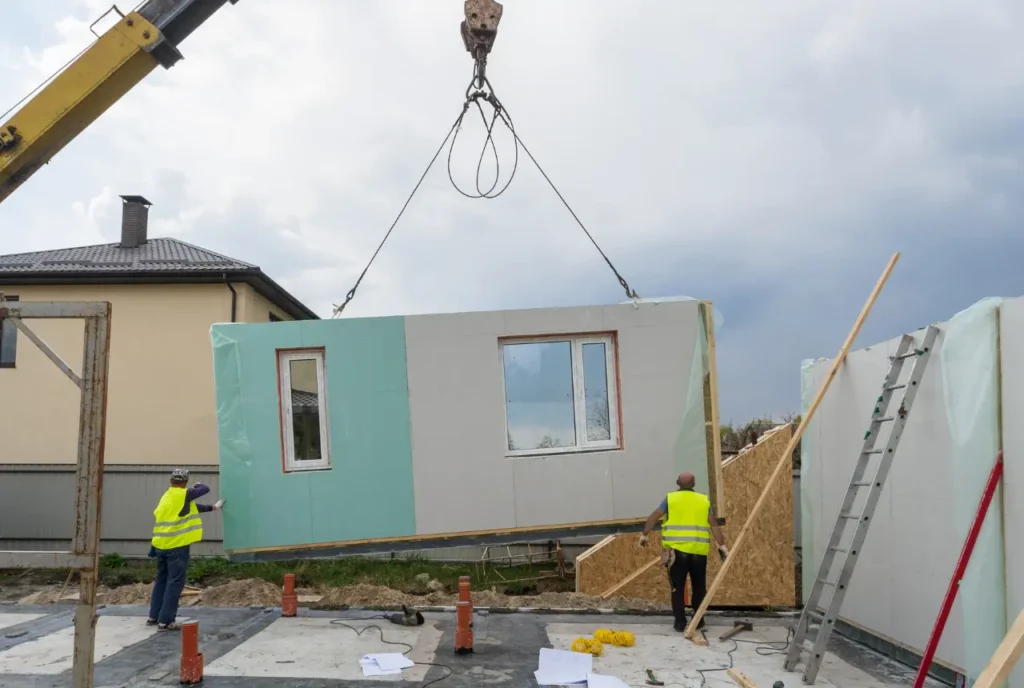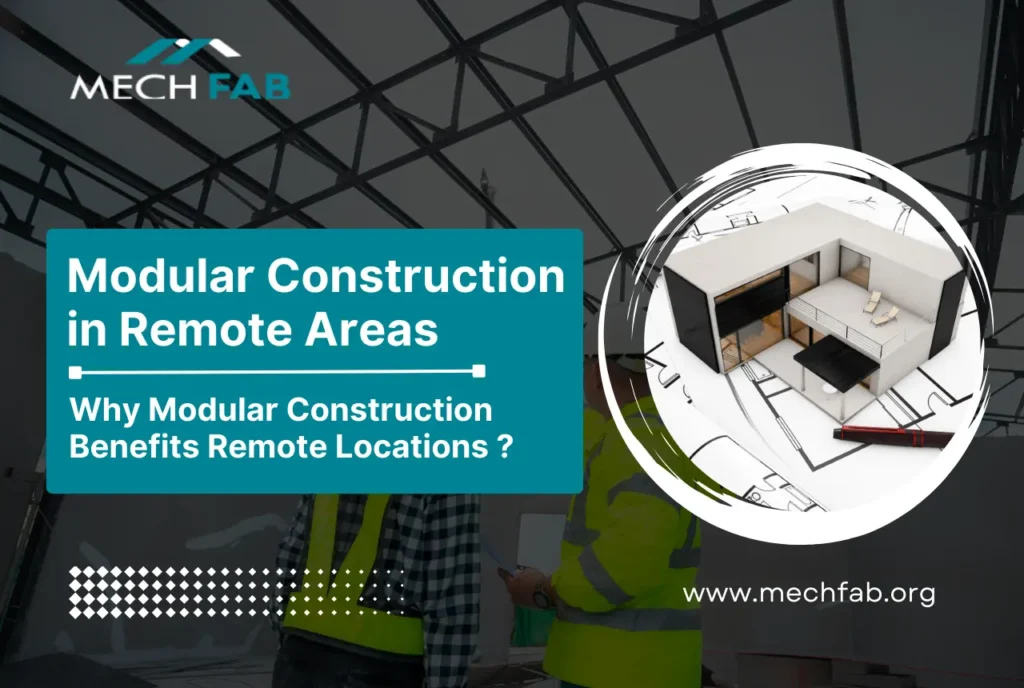Modular construction in remote areas is an evergrowing method that involves prefabricated components assembled on-site and has gained significant traction in recent years. This approach offers a compelling alternative to traditional construction practices, particularly in remote areas. While traditional construction can be arduous and time-consuming due to logistical challenges, resource scarcity, and limited labor availability, modular construction provides a more efficient and sustainable solution.
Modular construction involves the production of separate modules or pieces in a controlled factory environment. These modules are then brought to the project site and put together with minimal on-site work. This strategy has various features that make it ideal for isolated places where typical construction methods may be difficult.
Why Modular Construction is Ideal for Remote Areas?

Modular construction is the process of fabricating building components or modules in a controlled manufacturing setting (off-site) and then assembling them on-site. This strategy has various advantages, especially in distant places.
Remote construction projects frequently confront substantial hurdles due to restricted availability to resources, extreme weather conditions, and a dearth of experienced labor. Modular building can help to address these concerns. Manufacturing components in a controlled factory setting can cut shipping costs while also improving quality control. Furthermore, the standardized form of modular pieces enables faster installation, especially in distant areas with little infrastructure.
The adaptability of modular construction makes it an appropriate answer for the uncertain conditions common in distant places. Modules can be customized to match unique requirements, and alterations are more easily produced than with traditional construction methods. This adaptability means that projects may be completed efficiently and successfully, even under difficult circumstances.
5 Key Benefits of Modular Construction in Remote Areas
1. Faster Project Completion

Modular construction provides a substantial benefit in remote places by speeding up project completion. While traditional construction methods can need lengthy on-site operations, modular pieces are built off-site in a controlled factory environment. This parallel approach enables simultaneous site preparation and module construction, resulting in a significant reduction in total construction time. In fact, modular projects can be finished up to 50% faster than conventional ones.
This accelerated timeframe is especially useful in distant places where time-sensitive projects like healthcare facilities or emergency shelters are critical. Modular construction’s capacity to deliver these critical structures quickly can have a substantial impact on the lives of those affected. Furthermore, off-site fabrication reduces the impact of weather-related delays or disturbances in the supply chain, resulting in speedier project completion.
2. Cost-Effective Solutions

Modular building provides various cost-effective benefits in remote places. One notable advantage is the possibility of significant material cost savings. Prefabrication enables bulk purchasing of materials, resulting in lower prices. Furthermore, the controlled factory environment reduces waste, which reduces material costs.
Another cost-effective component of modular construction is its labor efficiency. Manufacturing modules off-site reduces the demand for skilled labor on-site. This is especially useful in rural places where skilled professionals may be rare and costly to travel. The standardized form of modular pieces simplifies assembly, which contributes to labor cost reductions.
Furthermore, modular buildings have long-term economic advantages due to their flexibility and adaptability. If the project’s requirements change in the future, modular pieces can be readily relocated or enlarged. This eliminates the costly procedure of constructing a new structure from scratch. To summarise, modular construction is a cost-effective alternative for distant places since it optimizes material utilization, reduces labor costs, and allows for future flexibility.
3. Sustainability and Environmental Benefits

Modular construction provides a sustainable and environmentally beneficial way to build in remote regions. One of the primary benefits is a substantial reduction in waste. Compared to traditional construction methods, the controlled manufacturing environment allows for more exact material usage and reduces waste formation. This efficiency results in a lesser environmental imprint.
Furthermore, modular apartments are frequently built using environmentally friendly materials and are meant to be energy efficient. This focus on sustainability helps to lessen the project’s overall environmental impact.
Another significant advantage is the limited on-site interruption produced by modular construction. In isolated places, protecting the natural environment is frequently a top priority. Modular construction lowers the need for considerable site preparation and heavy machinery, resulting in less disruption to the surrounding area.
4. High-Quality and Durable Buildings

Modular construction provides the advantage of manufacturing high-quality, long-lasting buildings, which is especially beneficial in isolated places. The controlled manufacturing setting in which modules are manufactured provides a better level of quality control. Consistent supervision and standardized processes improve the overall quality of the end product.
Modular buildings are specifically constructed to endure extreme weather conditions, making them perfect for the harsh settings common in isolated places. They are designed to withstand severe winds, heavy rainfall, and temperature changes, ensuring their durability and robustness.
Furthermore, quality control procedures in modular buildings can exceed those seen in traditional on-site construction. This meticulous attention to detail produces buildings that not only last but also meet or exceed industry standards.
5. Flexibility and Scalability

Modular construction offers exceptional flexibility and scalability, making it an ideal solution for remote areas. The modular units can be easily customized to meet specific project requirements, allowing for easy expansion or reconfiguration as needs change. This adaptability is particularly valuable in remote settings where project demands may evolve over time.
Furthermore, modular buildings can be repurposed or even relocated to different locations, providing long-term value. This flexibility is especially beneficial in industries like healthcare, mining, and education, where remote facilities may need to be adapted or moved to serve changing needs.
Overcoming Challenges in Modular Construction for Remote Areas

While modular construction has many advantages, it often creates logistical obstacles, especially in distant places. One of the most pressing challenges is the delivery of huge modules to the construction site. The long distances and frequently limited infrastructure in distant areas can make this a difficult task.
To meet these transportation challenges, creative logistics planning is required. Careful consideration of transportation routes, means of transport (e.g., trucks, barges, or even helicopters in extreme circumstances), and shipment timing can help to reduce delays and costs. Additionally, looking into local manufacturing or assembly of modular components can lessen the need for long-distance shipping.
Furthermore, using local resources might be an effective method. By procuring labor and materials locally whenever possible, project teams can lessen their dependency on foreign vendors while also supporting the local economy. This technique can also help to strengthen relationships with local populations and make project execution go more smoothly.
Rewinding the Important Notions
Modular construction offers a compelling solution for developing infrastructure in remote areas. By providing faster project completion, cost-effective solutions, environmental benefits, and high-quality, durable buildings, modular construction addresses many of the challenges associated with remote construction.
The speed of modular construction is particularly advantageous in time-sensitive projects, while its cost-efficiency can be a significant factor in remote areas where resources may be limited. Additionally, modular construction’s focus on sustainability and its ability to produce high-quality structures make it an attractive option for developers.
As a result, modular construction is increasingly becoming the preferred method for developing infrastructure in hard-to-reach locations. Its ability to overcome logistical challenges, deliver projects efficiently, and provide sustainable solutions makes it a valuable tool for addressing the unique needs of remote regions.





